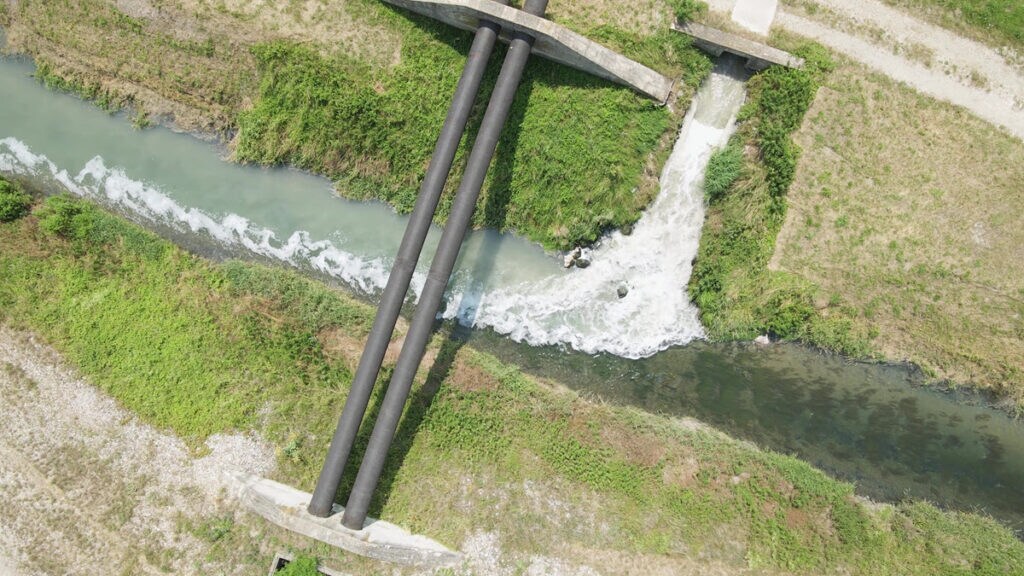In an era defined by environmental consciousness and operational efficiency, industrial and chemical manufacturers must adopt a holistic approach to water management. By embracing water reuse, adhering to wastewater discharge regulations, and mitigating corrosion and scaling risks, businesses can foster sustainability, resilience and competitiveness in a rapidly evolving regulatory landscape. Thermo Fisher Scientific stands as a trusted partner, offering innovative solutions to address the multifaceted challenges of industrial water management.
Reducing corrosion and scaling in industrial equipment

Understanding the causes: Corrosion and scaling pose significant challenges to industrial equipment integrity. Identifying the root causes, such as water impurities and chemical reactions, lays the foundation for effective mitigation strategies.
Water treatment solutions: Adopting advanced water treatment solutions is pivotal in mitigating corrosion and scaling issues. Thermo Fisher Scientific offers cutting-edge technologies that ensure water purity, safeguarding industrial equipment from degradation.
Regular maintenance: Preventive maintenance practices are indispensable for preserving equipment longevity. Routine inspections, cleaning procedures, and adherence to recommended maintenance schedules mitigate the risk of corrosion and scaling-related damage.
Monitoring and control: Deploying robust monitoring and control systems enables early detection of corrosion and scaling indicators. Timely intervention not only prevents equipment damage but also safeguards operational continuity, enhancing overall productivity.
Water reuse in manufacturing processes

Environmental and economic benefits: Water reuse presents a dual advantage of conserving resources and reducing operational costs. By treating and recycling water within their facilities, industrial manufacturers can curtail their environmental footprint while bolstering their bottom line.
Advanced water treatment technologies: Investing in state-of-the-art water treatment technologies is paramount for effective water reuse. Solutions like those offered by Thermo Fisher Scientific ensure that water is purified to meet stringent quality standards, enabling seamless integration into manufacturing processes.
Process optimization: Beyond technological advancements, process optimization plays a pivotal role in maximizing water reuse potential. Through meticulous analysis of water usage patterns and tailored strategies, industrial manufacturers can unlock new avenues for efficiency gains and sustainability.
Navigating permits for wastewater discharge

Understanding regulatory requirements: Compliance with wastewater discharge permits is non-negotiable for industrial facilities. Familiarizing oneself with relevant regulations is essential to avoid penalties and uphold environmental responsibility.
Wastewater treatment systems: Investing in robust wastewater treatment systems is instrumental in meeting regulatory standards. Solutions provided by Thermo Fisher Scientific offer reliable treatment options, ensuring that discharged effluent complies with prescribed limits.
Regular monitoring and reporting: Implementing a rigorous monitoring and reporting framework is indispensable for demonstrating compliance and addressing any deviations promptly. Accurate data tracking forms the cornerstone of responsible wastewater management practices.
Continuous improvement: To stay ahead of regulatory changes and evolving environmental standards, industrial facilities must embrace a culture of continuous improvement. Regular audits, technological upgrades, and proactive engagement with regulatory bodies are imperative for long-term compliance and sustainability.
Together, let us embark on a journey toward a sustainable future, where responsible water stewardship underpins industrial success. See how our analytical instruments can help you with all aspects of water management within your manufacturing practices: Get a free copy of our Environmental & Industrial Applications Compendium.
Related information
Blog: World Water Day: A Good Time to Reflect on the Critical Role of Water
Blog: Practical Analysis Solutions to Enhance Water Quality for a Safer Future
On LinkedIn? Visit our LinkedIn page #wateranalysis #wastewater #environmental #watertesting #CMD